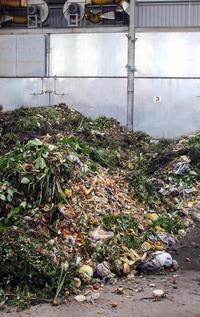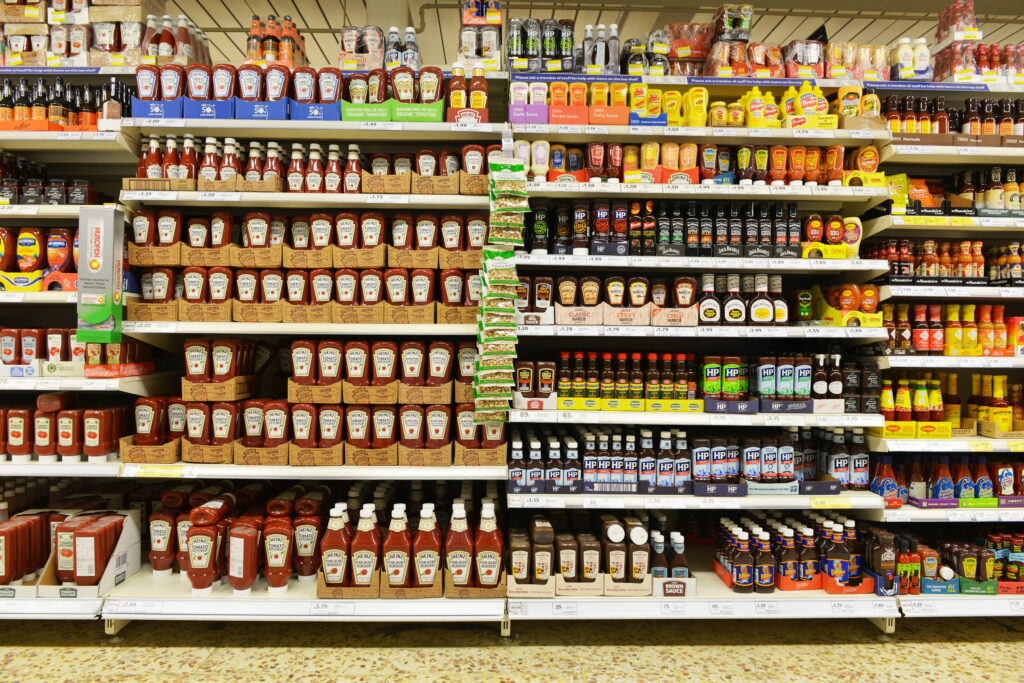Professional development
When I started in Organics, I had an inkling that food waste was going to become a high profile issue for the UK but I had no idea the public attention would be quite so far reaching.
Dr Richard Swannell
After graduating from Liverpool when he was 21, Dr Swannel's first job was working at Warren Spring, the government's environmental laboratory in Stevenage, which has now closed. Here, he studied ways of optimising In Vessel Composting of source segregated garden waste. He also conducted research on bio filters which are commonly used in the composting sector to prevent odours.
In 1994, Dr Swannell began a new phase in his career, working for AEA Technology plc – an environmental policy provider- where he specialised in handling international oil pollution. He then moved to Envirowise in 1999 – a Government programme,run by AEA Technology, providing advice to businesses on how to reduce their environmental impact and then to WRAP in 2004, heading up the retail division.
Waste and Resources Action Programme
The retail market was entering an era of change when Dr Swannell started at WRAP, with more and more businesses wanting to reduce their carbon footprint and find more environmentally friendly ways of operating. Dr Swannell was instrumental in the setting up of the Courtauld Commitment – a ground breaking agreement created in July 2005 when 13 top grocery retailers pledged to reduce the amount of packaging and food waste sent to landfill.
In April 2006 a directorship became available in WRAP's organic department, and Dr Swannell was appointed to the role. Food waste collections were already a high priority for local authorities in 2006 because of the 2010 and 2013 targets for biodegradable municipal waste. Dr Swannell comments: “When I started in Organics, I had an inkling that food waste was going to become a high profile issue for the UK but I had no idea the public attention would be quite so far reaching.
“Indeed, the shift in the public's attitude towards all environmental issues over the past year has been amazing and the fact that businesses are now using 'green initiatives' as part of their competitive strategy- really is a massive change.”
Dr Swannell goes on to say that in addition to the public's involvement in kerbside recycling of food waste, home composting is also playing a big part in changing householders' attitude towards waste management. Indeed he says that recent research has shown that people who home compost tend to favour buying recycled compost and other sustainable products.
Quality Protocol
One of the key priorities for the organics team over the last year has been the Quality Protocol for compost which was published this March. The much sought after Protocol, enables compliant composters to market their compost as a product as opposed to a waste.
Dr Swannell explains: “The Protocol is a major milestone for the composting industry and for the development of a resource economy in the UK. It will allow composters to manufacture quality products free of the ‘waste' tag, building customer confidence and leading to further growth in this fast expanding industry.”
The composting industry hopes that the Protocol will allow composters to access higher end markets for compost such as landscaping. Since the publication of the Protocol, the organics team has been involved in the implementation and 'bedding in' of the Protocol. Over the next six months the team will be responsible for developing and identifying higher end markets for compost and promoting the use of compost to the public.
Dr Swannell says: “Up to this point there has been a lot of emphasis on air and water pollution but now people are recognising that soil quality is having a real impact on the UK's farming sector. Encouraging people to recognise compost's role in improving soil- boosting its moisture and nutrient content- is vital.”
 Food waste collections are a priority for WRAP's ROTATE team
Food waste collections are a priority for WRAP's ROTATE teamOptimisation of food waste collections and processing is another major focus for the organics team this year working with WRAP's ROTATE team. Dr Swannell explains: “As recycling of food waste is only two percent, we now need to focus on how to increase efficient collections in a way that consumers find acceptable. Research has shown that collecting food waste separately not only decreases the amount of contamination but also increases the capture. In mixed food and garden waste collections research shows that on average only 10% of what is recycled is food waste, however the tonnages increase in source segregated collections.”
Identifying the best available technology to process food waste is another part of the organic team's remit. The results of WRAP's research on processing food waste was clearly visible in the new English waste strategy which stated that the government wishes to encourage local authorities and businesses to consider using anaerobic digestion to manage source segregated biowaste as it has “significant environmental benefits over other options for food waste (and may be particularly cost effective for food waste).”
Anaerobic digestion
Anaerobic Digestion is one of key technologies being promoted at the moment and Dr Swannell said that the team is also beginning to work on developing the markets for the by-products of anaerobic digestion- a liquid or solid digestate. This product has the potential to be used as a fertilizer in agriculture or potentially in other markets such as landscaping.
He says: “We are planning to run trials on AD digestate and work out how to write a Quality Protocol for this material, appropriate for food collected in a source segregated collection and other materials. Already if the digestate is blended in a windrow run to the publicly available standard, PAS100 it would be compliant with the compost Quality Protocol.”
Dr Swannell seems very much at home working in one of the key developing environmental sectors of the moment and while the next year is likely to throw up some exciting challenges for the team he seems more than capable of pulling out all the stops.








Subscribe for free